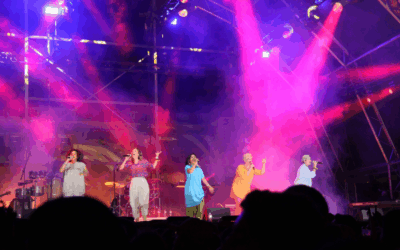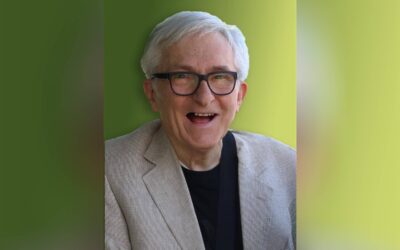The image of a country saturated by political and ideological conflicts, widely portrayed in Brazilian media in general, tends to hide the reality of those who act for the common good. Through dialogue and tangible acts of solidarity, they are able to take on diverging opinions. Though marked by strong political and ideological polarization, Brazil is silently growing seeds of a society that is renewed and open to dialogue, solidarity, and moving towards building relationships of fraternity. This is occurring in political spheres, as well as in civil and cultural ones as well. After having covered ventures put forward by various organisations, religious or not, to promote political reflection built on dialogue – a response to the growing question of the new culture of participatory democracy – we now want to put the spotlight on the commitment of many in the field of solidarity and volunteering. Typically, political action is guided by a sense of solidarity with those who suffer. In 2016, the government of the State of Rio de Janeiro began delaying its paying public servants’ salaries. Beyond the struggles in court and the numerous political protests against such measures, a network of solidarity has arisen since then supporting those workers and their families, who suffered the most because of the situation. These gestures, both by individuals and groups, multiplied throughout the state. To help the families in difficulty, an array of organisations mobilised to collect funds, make food baskets, buy medicines and cover other elementary needs. The archdiocese and other Catholic dioceses of Rio de Janeiro, like other churches and Christian communities, worked in collaboration with Muspe, the Movimento Unficado dos Servidores Publicos Estaduais. A similar situation saw close to 40 Brazilian civil and religious agencies work together to take in refugees, mostly from Venezuela. Some of these agencies carried out emergency actions (providing food, medicine, medical and psychological help), while others helped refugees obtain Brazilian residency by preparing the necessary documentation, Portugese language courses, housing and employment. These agencies were especially active in the border region between the two countries, as well as other areas where refugee families were sent in an attempt to offer them better housing and employment opportunities. Projects of this type reflect the hopes of many Brazilians to continually reach those most in need of help. Perhaps it is this urge that supports the data from the “Other Forms of Work” survey, which was carried out in 2017 and recently published by the Brazilian Institute of Geography and Statistics (IBGE). According to the study, 7.4 million people volunteered that year, the equivalent of 4.4% of the 14-and-older population. The researchers define “volunteer” as any non-obligatory work that is carried out at least an hour a week, without receiving any compensation or benefit in exchange, by people who do not live in the same family and are not their family. According to this research, volunteers in Brazil are typically women who, in addition to their volunteer work, have their professional and domestic work as well. Another example that comes from the Focolare Movement is Milonga, a programme that joins non-governmental organisations, who carry out social work in seven towns, with young people who want to combine their training with volunteering, giving their time and talent. As of October 2018, 75 volunteers with the project have worked in 19 organisations in Brazil, Argentina, Bolivia, Mexico, Paraguay, Venezuela, Uruguay, Kenya and Jordan. “I learned that the essence of life is not having, but being. Sometimes we are full of many things, but what truly counts are those things that remain for eternity in the present moment,” said Rarison Gomes, 30, originally from Manaus. The experience of volunteering coincides with young people taking up key roles, a trend that is growing among Brazilian teens who hope to progress from political deliberation to action. One significant example is the experience of the Coletivo Juventude Campo Cidade, which began more than 10 years ago with a conversation among friends in the small town of Poço Redondo, in the state of Sergipe in Northeast Brazil. Some of these young people were already active in social movements in an area called Alto Sertão Sergipano. Spurred on by the election of 2008, these young people decided to create a political training programme for other young people in the area. Despite being without funds and having little support, the group organised a course with 11 steps that lasts a year and a half. At the beginning of the project there was clear awareness: what was needed was training and getting to know the situation in order to take on social action in the region. “There was this feeling of wanting to change society, and this grew at every stage of the course,” says Damião Rodrigues Souza, part of the group who came up with the idea. At the end of the first course, the young people concluded that the experience they had begun there needed to continue, based on three pillars: training, organisation, effort. The last of these pillars took shape within a series of projects that produced effective results. The course was included on a campus of a public federal university in the region. The young people themselves built a public theatre that can hold 200 people at Poço Redondo. The federal government donated a previously unused piece of land to be used by the young people to grow organic products. These and many other examples of dialogue and political participation are isolated and spread throughout Brazil’s more than 8 million square kilometres. But just like other tangible actions that build a more just and fraternal society, they bear witness to a picture that is much healthier than the simple political polarization that the greater part of Brazilian society is being led by. For those playing a key role in these actions, hope lies in their conviction that the examples and the real results are able to attract “followers” and to give strength to their role. It will be fundamental to unite people and favour the common good, beyond any political or ideological divide.
Luís Henrique Marques




0 Comments